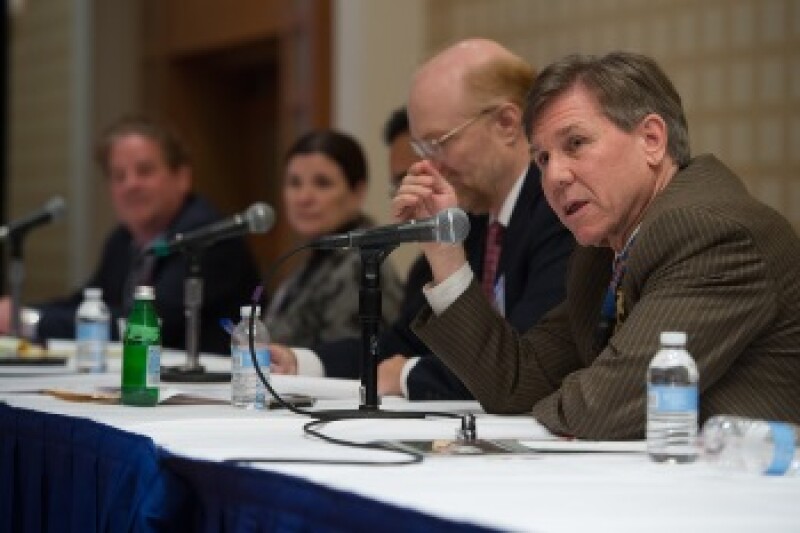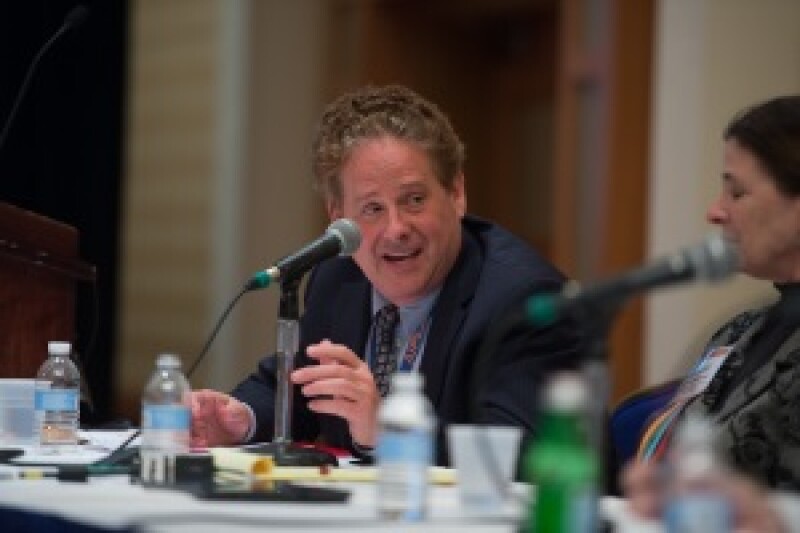
“The point is the law makes no sense any more, and when it makes no sense any more it has to be rewritten,” Rader said in an afternoon session on patent law yesterday at the AIPLA Annual Meeting. “Not in the House, but the Senate – the Republicans are coming!”
Rader said that he recently did something he had not done for a long time – he read a judicial opinion five times. It was the Australian Myriad judicial opinion.
“The Australian version of Myriad, not the American one, got it dead right,” said Rader. “United States law is the one that is out of tune.”
Rader appeared to suggest that the audience should consider how an appeal will affect the law before filing one. One audience member pushed him on this, saying a client may think settlement terms are unacceptable even if an appeal may change the law in a way it doesn’t like.
“What I’m telling you is if you bring Bilski to the Supreme Court you can expect the results you are going to get,” replied Rader.
“Therefore, if you are wise, you settle it before it gets there. Has that happened before? Yes. Dozens of times and that’s what this group can do strategically to get a good case so that there is good law.
“How well have you done with Bilski, Alice, Prometheus and Myriad? How do you propose we get from the US state of patent eligibility, which is out of step with the whole world, back in to harmony with international standards? I just told you – legislative correction.”
Rader said that given a case with the right characteristics, however, there is a chance for the law to be narrowed. “If you find the right case, there is room to narrow it,” he said.

Responding to some pessimistic audience comments about the effect the Supreme Court is having on innovation in the technology space, Bob Stoll, the session’s moderator, said: “I do think software is patentable and claiming it in a manner that is viable is still possible. But I think there are significant problems and we need to figure out a way to make sure it doesn’t deteriorate further and does in fact get better.”
He noted that the fact that a number of industries are being affected could give cause for hope that there will be change. “I do think we have a collective pain here where we have got all the emerging technologies under attack,” said Stoll. “It is rare we get the folks in the software creation industry in complete alignment with those in the biotech industry. The catalytic manufacturing industry is also going be impacted as are surgical devices.”
He continued: “I think you’re going to find a very strong group of companies and interests looking to fix this. If we decide to go in that direction, that would be very helpful for moving things on the Hill, because I do believe that Members of Congress and Senators listen to their constituents who come to talk to them. Patent subject matter eligibility hasn’t been at the forefront in Congress, but as it elevates there may be some interest in doing something.”









